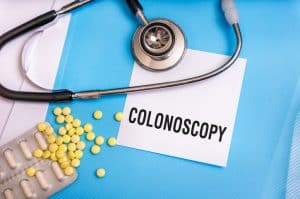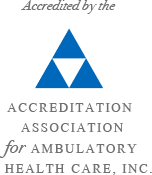What to Expect After a Colonoscopy
 Lower GI endoscopy is also known as a colonoscopy. This screening is important for all adults beginning at age 50. The purpose of this endoscopic procedure is to observe the lower GI tract for signs of inflammation, tumors, polyps, or other asymptomatic abnormalities. A person can have any of these conditions without noticeable symptoms. Each could become problematic at some point, requiring more advanced medical intervention. Early detection through a colonoscopy is ideal for optimal patient outcomes. When we perform colonoscopy screenings, we want our patients to be thoroughly prepared for their procedure as well as for what comes after. We’ll discuss that here.
Lower GI endoscopy is also known as a colonoscopy. This screening is important for all adults beginning at age 50. The purpose of this endoscopic procedure is to observe the lower GI tract for signs of inflammation, tumors, polyps, or other asymptomatic abnormalities. A person can have any of these conditions without noticeable symptoms. Each could become problematic at some point, requiring more advanced medical intervention. Early detection through a colonoscopy is ideal for optimal patient outcomes. When we perform colonoscopy screenings, we want our patients to be thoroughly prepared for their procedure as well as for what comes after. We’ll discuss that here.
Immediately after a Colonoscopy
Before a colonoscopy, patients are given a sedative to help them stay comfortable during the screening. Due to the effects of the sedative, patients often remain at the facility for about an hour after their exam is complete. This allows the body to process at least some of the medication. Keep in mind that it can take up to 24 hours for the sedative to completely wear off. Until that time, patients should not drive or go to work.
Because patients cannot safely drive, it is necessary to have someone accompany them to their appointment.
Eating after a Colonoscopy
To prepare for a colonoscopy, patients follow a specific diet and prep protocol for a day or two before their appointment. After the screening, most patients can resume their normal eating habits without delay. Some exceptions may apply. For example, if a polyp is removed during the examination, some dietary restrictions may be recommended for a short time. Patients may also experience mild cramping, bloating, and gas-like sensations after their colonoscopy. These side effects should not last long but may inhibit the desire to eat right away.
Post-Colonoscopy Side Effects to Be Aware Of
The sensation of bloating and gas may be helped by walking or lying on the side. These activities can help air move out of the lower GI tract. Some patients notice a trace amount of blood in their stool after their colonoscopy. This is a minor side effect that usually occurs no more than one or two times. If bleeding is more noticeable or it occurs alongside fever, chills, or abdominal pain, the patient should contact their gastroenterologist.
Gramercy Park Digestive Disease Center offers professional care at two friendly, comfortable offices in NYC. Contact us today to schedule your appointment.


